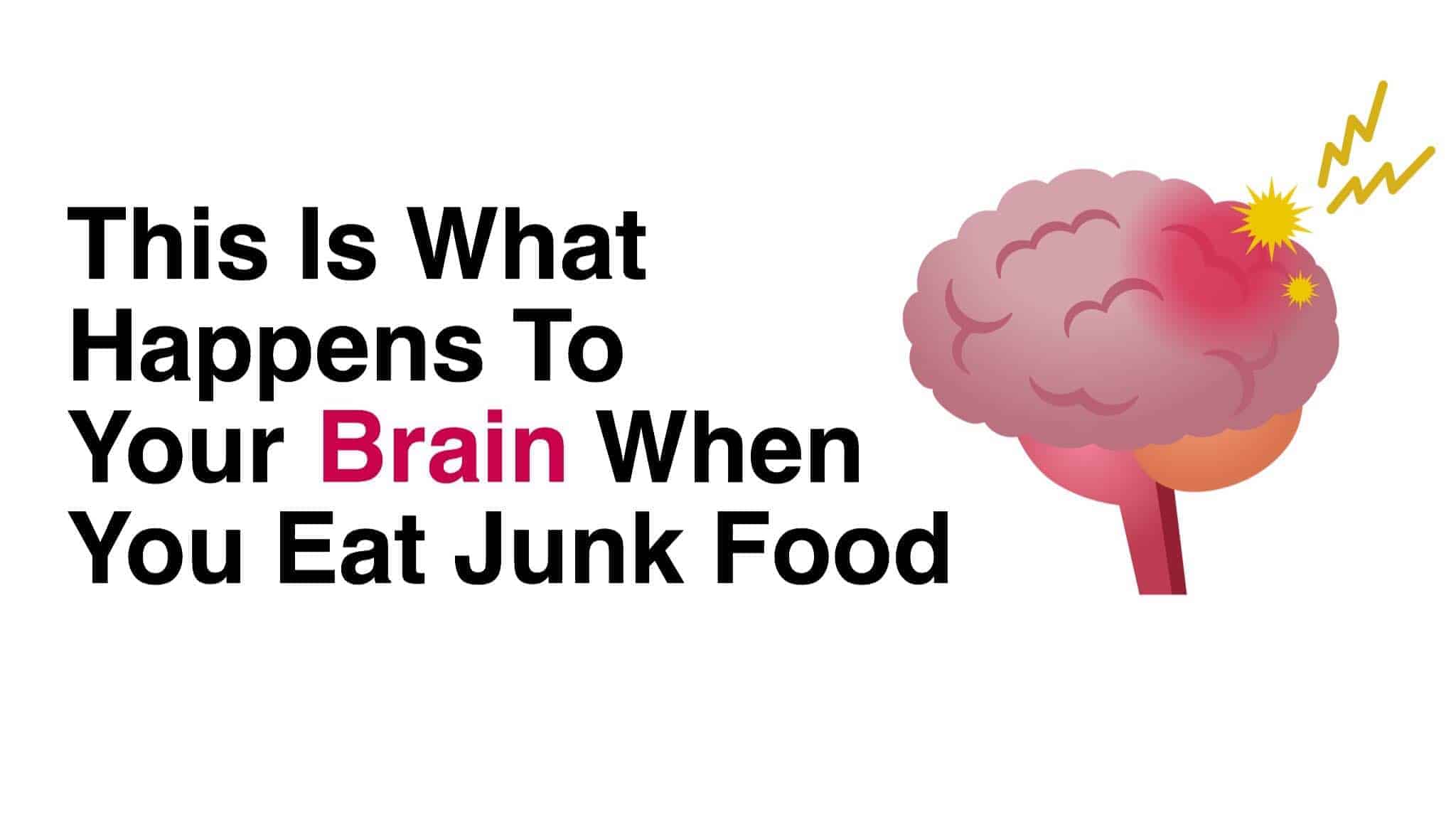“Nobody had ever told me junk food was bad for me. Four years of medical school, and four years of internship and residency, and I never thought anything was wrong with eating sweet rolls and doughnuts, and potatoes, and bread, and sweets.” – Robert Atkins
Science has since reaffirmed most of Dr. Atkins’ apprehensions about junk food, yet there remains an unexplainable absence of scientific study in one very important area: how junk food affects the human brain.
As Dr. Fernando Gmez-Pinilla, professor of neurosurgery and physiological science at UCLA puts it: “Food is like a pharmaceutical compound that affects the brain.” Gmez-Pinilla would know – she’s spent numerous years studying the cause and effect relationship of food and the brain.
Since conducting her research, Gmez-Pinilla has significantly altered her own diet – a testimony to the wide-ranging effects of food, particularly sugar, on the human brain. Specifically, Gmez-Pinilla eats much less fast food and junk food since her studies. And yes, most fast food is considered junk food because of the high calories and low nutritional value that the vast majority of fast food contains.
Here’s what happens to your brain when you eat junk food:
The brain’s synapses – chemicals responsible for transferring information from one cell to another – are negatively impacted by junk food. As a result, the brain’s ability to learn and memorize are diminished.
In addition to reducing the brain’s learning and memory functions, junk food negatively alters cognitive and body function in other ways.
First, junk food creates the tendency to eat too much food, too quickly. All junk food lacks nutritional value and essential nutrients, including fiber. As such, the innate sense of satiety (feeling “full”) dullens when eating junk food. This results in eating more and more to obtain any feeling of fullness – all while ingesting “food” saturated with sugar and refined carbohydrates and of no nutritional value.
Second, junk food can negatively affect our mood. In one study, researchers discovered that people who ate fast food are 51 percent more likely to have depression. Dr. David Katz, director of Yale University’s Prevention Research Center, says: “Higher intake of fast food may very well increase risks of depression by causing poor health in general.”
Third, the human brain can get addicted to sugar. The chemical makeup of sugar activates brain receptors that correlate with addictive behavior. Physiologically, brain scans have revealed that neural activity when eating sugar is similar to that of an alcoholic or drug addict. Dopamine (the brain’s “reward” chemical) levels also ebb and flow in a way that mimics addictive tendencies. These discoveries have led to many calling for sugar to be labeled as a “toxic substance;” one to be regulated in a way similar to alcohol and tobacco.
Next, sugar can initiate episodes of “brain fog,” a general term used to describe periods of mental confusion and lack of clarity. Researchers at the University of California, Los Angeles hypothesize that sugar causes the formation of free radicals in membranes and inhibits the nerve cells’ ability to communicate properly. The study’s author explains that these physiological alterations can lead to a diminished ability to “remember instructions, process ideas, and handle our moods.”
Perhaps most troublesome is newfound evidence that suggests sugar can actually cause our brain to shrink. Researchers at Deakin University and the Australian National University discovered that Australians with unhealthy diets – including excessive intake of sugar (see results of the study) – can decrease the size of the hippocampi. The hippocampus area of the brain is believed to be vital to learning, memory and mental health. Further, researchers discovered older adults that have maintained a healthy diet have larger hippocampi.
The results of the study:
– Older adults who ate more unhealthy foods, such as sweet drinks, salty snacks and processed meats, have smaller left hippocampi.
– Older adults who ate more nutrient-rich foods, such as vegetables, fruits and fish, have larger left hippocampi.
– Findings of the study are deemed to be relevant to both dementia and mental health research.
Professor Felice Jacka, the lead author of the study, summarized the findings: “…it points to the importance of diet for brain health in (all) age groups. As the hippocampus is critical to learning and memory throughout life, as well as being a key part of the brain involved in mental health, this study underscores the importance of good nutrition for children, adolescents and adults of all ages.”
In conclusion, various scientific studies have determined that sugar and junk food: shrinks the brain, limits learning and memory, impairs cognition, is addictive, negatively impacts mood, and promotes overindulgence. Of course, the complete elimination of sugar from our diet is unnecessary (although ideal, health-wise). Instead, we should aim to strictly limit the amount of sugar in our diet. Those of us with children would be wise to monitor their sugar habit, as well.















